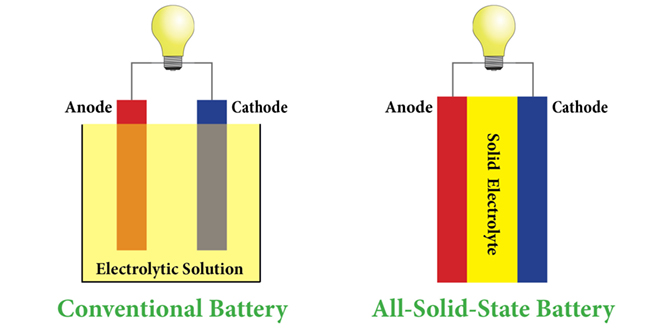Solid-state electrolytes are the talk of the town these days. California-based PATHION has been working to commercialize solid electrolytes since its founding in 2012, building on its exclusive license from Los Alamos National Laboratories for a promising material called Lithium-Rich Anti-Perovskite (LiRAP).
At the recent Materials Research Conference, PATHION presented two new superionic solid-state electrolytes built upon LiRAP. The LiRAP electrolytes conduct lithium ions well at high voltage and high current, which could enable more powerful and safer batteries.
Unlike liquid electrolytes, solid-state materials exhibit low expansion, no outgassing, and no dendrite growth between anode and cathode. These three phenomena are typically the culprits in the explosions and fires that can occur with liquid-based lithium-ion batteries.
“Our researchers have presented new derivatives of our LiRAP solid-state electrolyte that not only deliver safe, non-flammable batteries, but also provide a path to more than 1,000 Wh/kg of energy density.†said PATHION CEO Mike Liddle.
PATHION’s first presentation described LiRAP in a solid-state lithium-sulfur electrolyte, combined with a sulfur cathode. This arrangement delivers a significant improvement in charge efficiency and longer cycle life. Such a lithium-sulfur battery could achieve specific energy levels up to 800 Wh/kg, compared to about 250 Wh/kg for today’s best lithium-ion cells. The new lithium-sulfur-based material can operate as either a battery or a supercapacitor.
The second presentation described sodium ion battery cells using PATHION’S LiGlass solid electrolyte. LiGlass exhibits ultrafast ionic conductivities from room temperature up to 200° C, and could enable energy densities exceeding 1,000 Wh/kg.
Source: ChargedEVs



